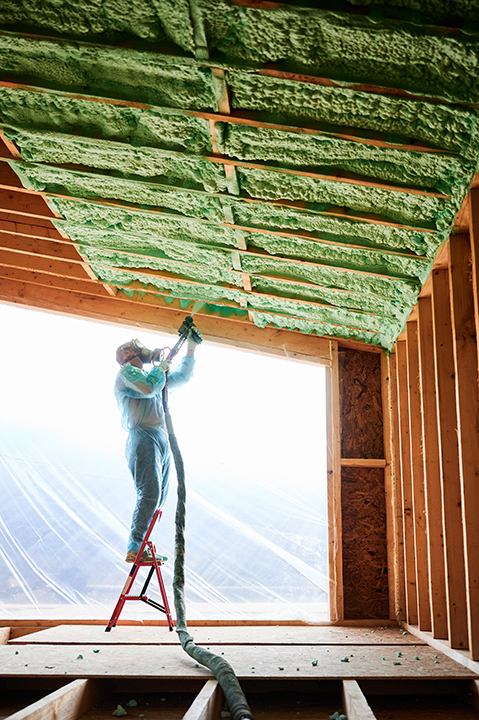Closed-Cell Spray Foam
How does it work?
Closed-cell spray foam is a high-density insulation made from polyurethane that expands when applied, forming a rigid, durable, and airtight barrier. Unlike open-cell foam, the tiny cells in closed-cell spray foam are completely sealed, making it stronger, more moisture-resistant, and better at insulating.
Key Characteristics
- Texture: Hard and rigid
- Density: ~2 pounds per cubic foot
- R=Value: Around R-6 to R-7 per inch (very high)
- Expansion Rate: Expands less than open-cell foam (about 30x original volume)

faq's
Closed-cell spray foam insulation provides a rigid, moisture-resistant barrier that seals air leaks and adds structural strength, making it ideal for basements, crawl spaces, and exterior walls where maximum energy efficiency is needed.
High Insulation Value:
+ Excellent thermal resistance with one of the highest R-values per inch of any insulation material.
Air and Vapor Barrier:
+ Seals air leaks and acts as a moisture barrier when applied thick enough (between 1.5 and 2 inches).
Structural Strength:
+ Adds rigidity and structural support to walls and roofs.
Water Resistant:
+ Doesn't absorb water and won't promote mold growth.
+ Ideal for flood-prone or damp areas like basements or crawl spaces.
Space Efficient:
+ Ideal where you need maximum insulation in tight spaces (e.g., rim joists, thin walls).
+ Higher cost per board foot than open-cell or batt insulation.
+ Less soundproofing than open-cell foam due to its rigid structure.
+ Can trap moisture if not applied properly or without considering vapor diffusion needs.
+May require professional installation due to mixing and curing needs.
+ Basements and crawl spaces
+ Exterior walls
+ Unvented roof assemblies (e.g., cathedral ceilings)
+ Metal buildings, poll barns, shipping containers
+ Commercial and industrial buildings
